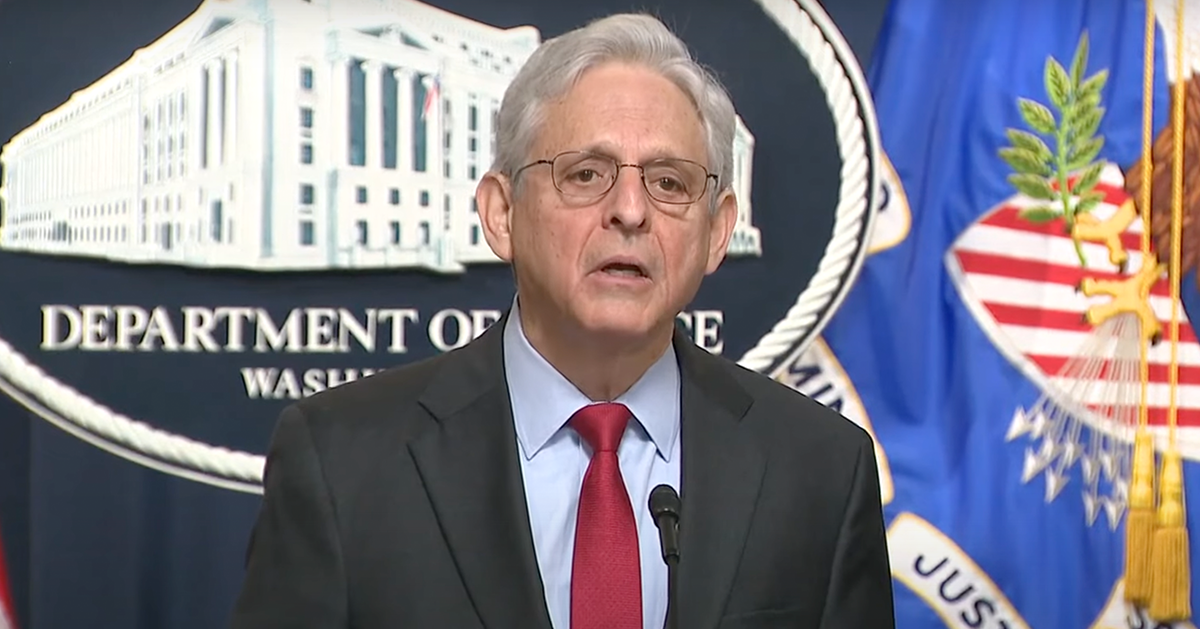State department employee publicly quits over Biden’s Gaza policies
In a stark protest against the Biden administration's approach to the crisis in Gaza, Annelle Sheline has resigned from her role within the State Department.
Annelle Sheline steps down, citing the U.S. government's involvement in enabling actions that the International Court of Justice describes as potentially genocidal in Gaza, sparking significant concern over human rights advocacy.
Sheline served as a foreign affairs officer at the Office of Near Eastern Affairs in the Department of State’s Bureau of Democracy, Human Rights, and Labor. Her resignation comes amidst escalating concerns over the United States' stance on the ongoing conflict in Gaza, with the International Court of Justice suggesting the situation could amount to genocide.
Personal Convictions Lead to a Public Resignation
In articulating her decision, Sheline penned an opinion article for CNN. Within it, she expressed profound disillusionment with the United States’ eroding stature as a defender of human rights worldwide, especially since the onset of the conflict. This dim view of the U.S.'s role was a driving force behind her resignation.
Throughout her tenure, Sheline encountered challenges in engaging with members of civil society, a critical component of her mandate to support journalists in the Middle East. A recurring theme of disappointment emerged as her contacts within civil society began to ignore her outreach efforts, undermining the objectives of her office.
This disappointment was amplified by the difficulties faced when Palestinian journalists were detained or killed in Gaza. Here, Sheline found the U.S. government's lack of action particularly disheartening, contrasting sharply with her office's mission to aid journalists.
Highlighting a Crisis of Conscience Within the State Department
The numbers speak volumes about the dire situation in Gaza. According to the Committee to Protect Journalists, the region has witnessed the death of ninety Palestinian journalists over the last five months. This staggering figure represents the highest number of journalist casualties in any single conflict recorded since 1992.
Sheline's decision to resign was initially meant to be a quiet one. Given her relatively short tenure — having been hired on a two-year contract — she felt her departure wouldn’t warrant a public announcement. However, the supportive response from her colleagues, urging her to voice their concerns as well, prompted her to reconsider.
Thus, she decided to make her resignation public, despite understanding that this might preclude her from future opportunities at the State Department. This bold move underlined her commitment to the principles she stood for, even at a significant personal cost.
A Wider Dissatisfaction Among Federal Employees
Sheline was not alone in her concerns regarding the administration's policies in Gaza. She recounts hearing similar frustrations from other federal employees, who also attempted to influence policy but felt their efforts were in vain. Their collective disappointment points to a broader issue of disillusionment within the ranks of the government.
The crux of this dissatisfaction lies in the administration's perceived negligence of American laws. These laws expressly forbid the U.S. from offering assistance to foreign militaries guilty of committing severe human rights abuses, as well as those that hamper the delivery of humanitarian aid.
Sheline's quotes from her CNN op-ed poignantly encapsulate her grievances. She notes the profound disheartenment in witnessing the U.S.'s passive role, a sentiment that contributed heavily to her decision to resign in a bid to bring these issues to the forefront.
The Contrast Between Advocacy and Action
Sheline’s action underscores a critical debate on the United States' foreign policy stance, especially in contexts requiring staunch human rights advocacy. Her resignation is not merely a personal decision but a public statement on the perceived inconsistencies between the U.S.'s avowed support for human rights and its actions on the international stage.
As calls for accountability and a reevaluation of U.S. foreign policy grow, the administration faces increased scrutiny over its handling of the situation in Gaza. Sheline's departure adds a significant voice to the chorus of those seeking a more active and principled approach to international human rights issues.
The global community continues to watch closely, as the implications of this resignation resonate beyond the confines of the State Department, challenging the U.S. government to align its actions with its proclaimed values in human rights advocacy.
Conclusion
In conclusion, Annelle Sheline's public resignation from the State Department underscores a growing frustration among U.S. government employees over the handling of the crisis in Gaza. Citing the Biden administration's role in enabling actions potentially amounting to genocide, and expressing dismay at the lack of support for journalists in the region, Sheline's exit amplifies concerns over the U.S.'s diminishing credibility as a human rights advocate. Her decision also highlights the broader disappointment within the administration, signaling a call for renewed examination of U.S. foreign policy and its commitment to human rights. Sheline's bold move puts her at odds with future opportunities at the State Department, but it also positions her as a significant voice for change and accountability.





